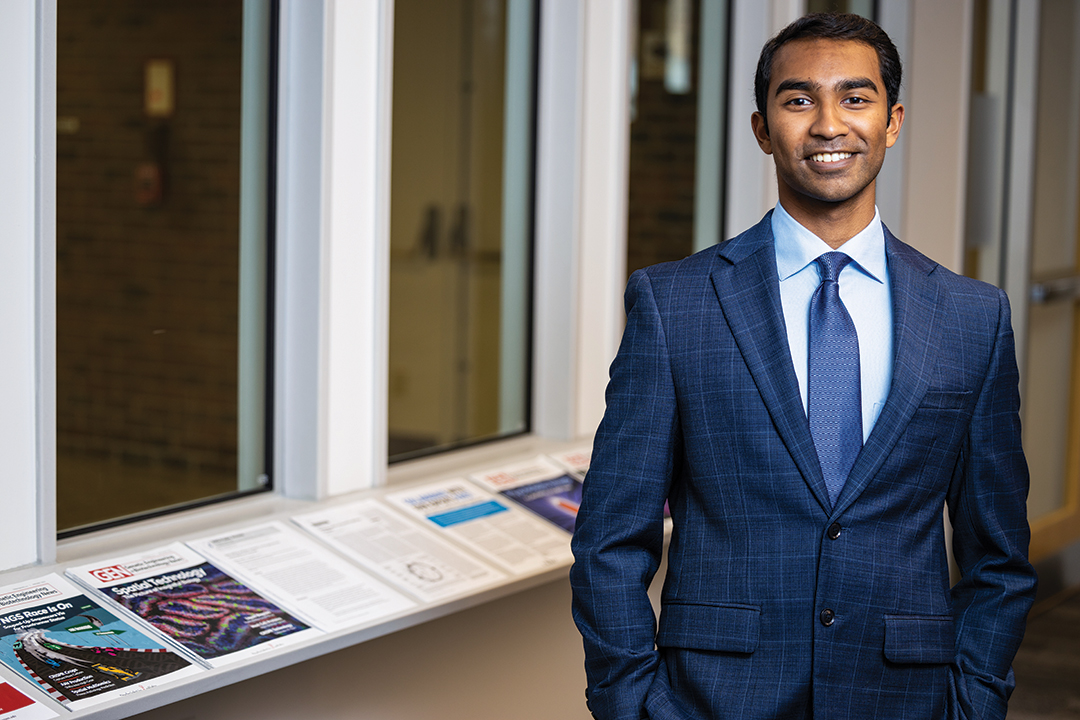For Matthew William ((BLA ’23/M.D. ’24)), the sky isn’t the limit. It’s more like other planets, stars and space stations. William, who is one of the School of Medicine’s most recent graduates, just began his residency in anesthesiology at the University of Michigan. Long-term, he hopes to become an astronaut, focusing on the effects of space flight on the human body.
“Michigan has medical faculty members who are either past NASA astronauts or are currently engaged in research with NASA, so I’m hoping to get mentorship from some of them during residency,” William said.
The connection between anesthesiology and space flight may not seem obvious, but the ties run deep through the aerospace medical field, according to William. He has already logged hundreds of hours participating in research with NASA, SpaceX and military members exploring how the human body reacts to space flight, how to best prepare humans for that journey and what guidelines will be necessary in the future.
As the associate dean for research at the School of Medicine, Paula Monaghan-Nichols, Ph.D., sees the significance in William’s research.
“His research will be critically important in creating guidelines that could not only impact regulations on space flight but may also guide therapeutic interventions that address the physiological challenges to the space exploration,” Monaghan-Nichols said.
William is especially intrigued that surgery, one of the main areas anesthesiology comes into play, is largely unexplored outside Earth.
“I was curious about, ‘what if someone has trauma in space or an emergent issue like appendicitis or cholecystitis, and they must come back to Earth immediately?’” William wondered. “‘How are the things that space does to your body going to affect your morbidity and mortality after surgery?’”
These questions led him to analyze NASA’s existing data and calculate that just two weeks in space already showed a minor increase in mortality.
“With longer-duration spaceflight coming up in the future, I think that risk is going to be a lot higher,” William said. “Learning how to optimize cardiovascular parameters like your heart rate and blood pressure is going to be huge in figuring out how to make people have better surgical outcomes when they come back from space.”
William is part of an international team working under the Aerospace Medical Association, where he’s working with top-notch minds to develop guidelines that commercial companies and government agencies can use when space flight becomes available to the average person. While we aren’t quite there yet, we aren’t too far off.
“When you’re thinking about sending everyday, regular people to space, there’s a concern about, ‘how do we make that optimal for coming back to Earth?’” William said.
William’s research sounds right out of a science fiction story, and for good reason. He has loved science fiction his whole life, and outer space is now an arena where he can work – and play – in real life.
“I think, at some point, I’ll join the Air Force or Navy to get more aerospace training,” he said, “and then eventually apply for astronaut candidate school.”

